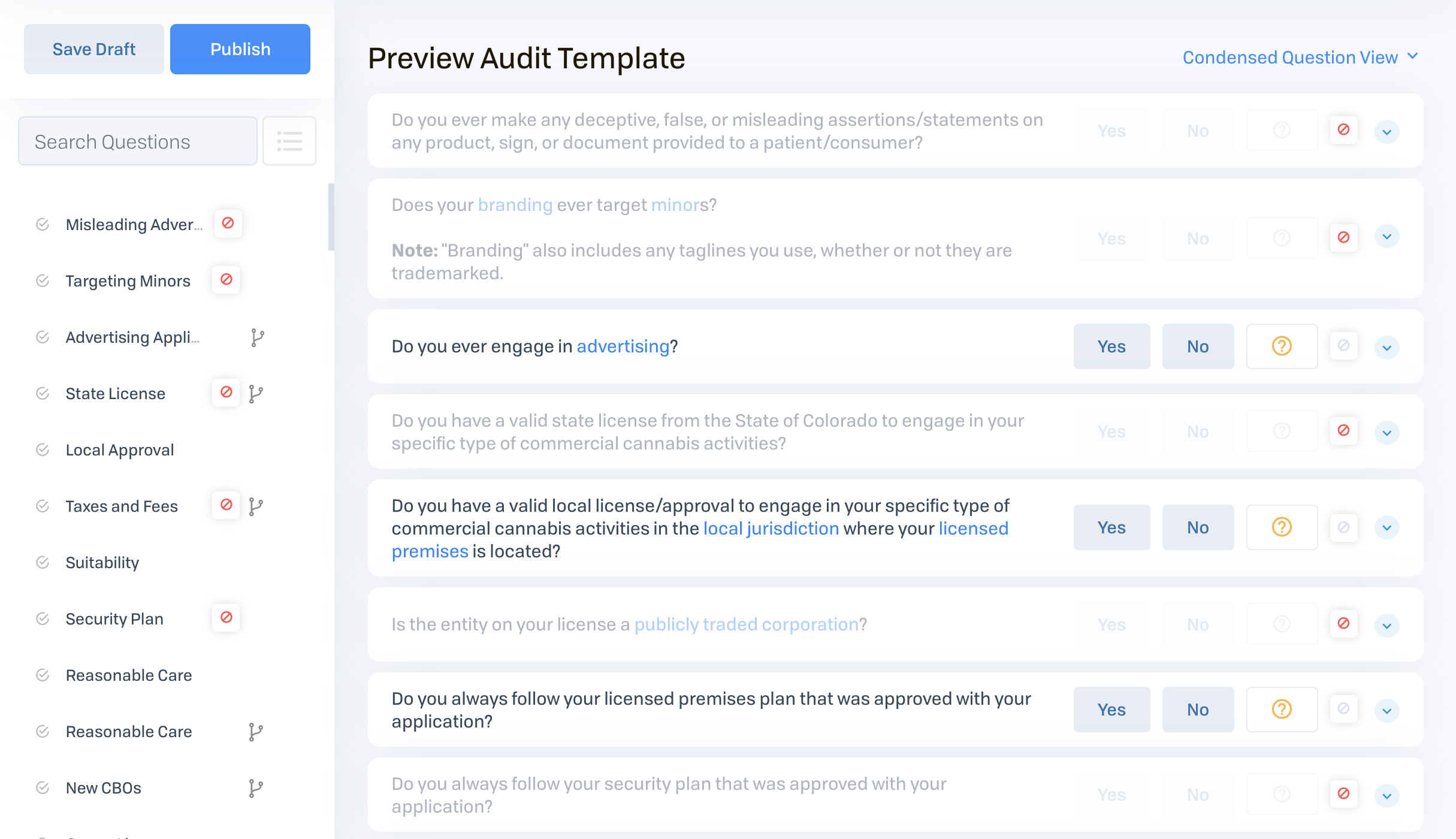As of May 2020, Simplifya's Audits module gives you the ability to create Audit Templates.

To jump ahead to the specific use cases for Audit Templates:
- "I want to design a re-usable audit for a single facility."
- "I want to create a brief monthly regulation-based audit."
- "I want to create a company-wide or role-based training audit."
What is an Audit Template?
An Audit Template is a set of questions that can be re-used over multiple audits. Audit Templates:
- Save you time in the set-up and assignment of audits
- Help you create a baseline set of questions that can be used over time
- Make use of Simplifya and/or custom questions (see: Content Types)
- Can be created from an existing audit
- Can be fully customized by muting questions you don't want to answer
For more on working with Audit Templates, see: Creating and Editing Audit Templates.
When to create an Audit Template vs an audit
Since audit templates allow you to assign audits with questions already muted and/or re-ordered, they reduce audit completion time while allowing you to highlight only most relevant questions for a license or location.
Here are some examples of when you might want to create an Audit Template.
"I want to design a re-usable audit for a single facility."
With an Audit Template, you can save the time on building a repeatable audit for a single facility, including:
- Reordering the audit questions to match the facilities layout.
- Muting questions that need to be answered on a less frequent basis.
- Adding custom questions (via Question Groups) that only pertain to that facility or state.
"I want to create a brief monthly regulation-based audit."
With an Audit Template, you can create and assign audits with ONLY the most important and frequently changing compliance questions, including:
- Muting questions or entire categories, leaving on the most pertinent questions for your monthly checks.
"I want to create a role-based training or comprehension audit."
With an Audit Template, you can create and quickly assign audits to test or train users, including:
- Customizing a Question Group to ask users a set of proprietary custom questions.
- Re-ordering or muting questions based on an assignee's particular set of responsibilities.
Comments
0 comments
Please sign in to leave a comment.